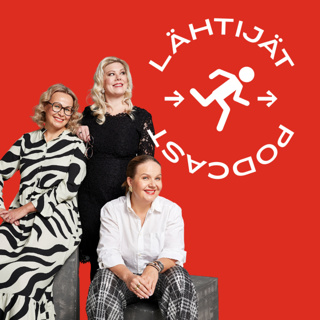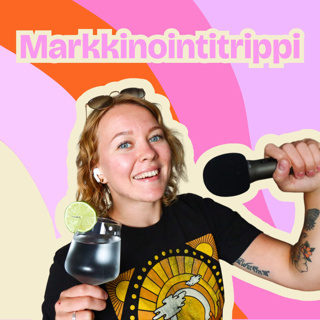
a16z Podcast: The Best Way To Be Smart ... Is To Not Be Stupid
Legendary investor Charlie Munger (Warren Buffett's financial partner and vice chairman of Berkshire Hathaway) invokes a set of interdisciplinary "mental models" involving economics, business, psychology, ethics, and management to keep emotions out of his investments and avoid the common pitfalls of bad judgment. In a new book focused on lessons learned from Munger, Tren Griffin (who works at Microsoft and has long focused on lessons learned from many investors) shares insights on decision making and the psychology of human judgment -- especially as it applies to investing and risk. But Griffin believes that these lessons can be applied to all of us in our daily lives, not just by investors. (He also argues that investing may be one of the last liberal arts). So how then do we channel our inner Munger? In this episode of the a16z Podcast, we discuss how to think about thinking; why the best investors and business leaders spend more time on what they DON’T know; and how the best way to be smart is to ... not be stupid.
11 Syys 201532min

a16z Podcast: Apple Has Lock on Luxury Smartphones, But Not Business of TV
Apple has once again shown it absolutely dominates the high-end for smartphones, and no other company is likely to knock it from its perch in the near term, says a16z's Benedict Evans. But does it control the future of TV? Not yet. Evans breaks down the latest Apple event, filled with iPhones, iPads and Apple TV, in this segment of the a16z Podcast. Why the "3D Touch" Apple is featuring on its 6S phones is something only Apple could have pulled off, and why its latest iPad -- the Pro -- creeps into the PC market.
10 Syys 201526min

a16z Podcast: Code and Culture in South Central Los Angeles
South Central Los Angeles -- which includes Watts and Compton -- in many ways still hasn’t recovered from the Rodney King riots of 1992. In South Central L.A. there isn’t the same opportunity found elsewhere in L.A. When Oscar Menjivar returned as an adult to his South Central community, what he found were too many teens facing options that went from bad to worse. He decided to attack the lack of possibilities through coding.
7 Syys 20157min

a16z Podcast: Crypto, Security, CS, Quantum Computing, and More with Our New Professor-in-Residence
Many of the most successful companies have their foundations in university labs -- from data science to the web browser itself. Yet the process of moving from research project to successful startup isn't always straightforward. With the goal of smoothing this process and continuing to bridge entrepreneurs across academia and industry, we began the a16z Professor-in-Residence program just last year. And this year's newly anointed Andreessen Horowitz Distinguished Visiting Professor of Computer Science is Dan Boneh, Professor of Computer Science and Electrical Engineering at Stanford University as well as Co-director of the Stanford Computer Security Lab. In this episode of the a16z Podcast, we sit down with Boneh to chat about applied vs. theoretical math and computer science; what's missing and what's next with "usable" security (including various authentication approaches); and current and future trends in cryptography, bitcoin, and more. Boneh also shares his thoughts on MOOCs (massive open online courses) as the "21st century version of the textbook". Oh, and on when quantum computing will finally happen... and why we should (and shouldn't!) freak out about it. Yet. The views expressed here are those of the individual AH Capital Management, L.L.C. (“a16z”) personnel quoted and are not the views of a16z or its affiliates. Certain information contained in here has been obtained from third-party sources, including from portfolio companies of funds managed by a16z. While taken from sources believed to be reliable, a16z has not independently verified such information and makes no representations about the enduring accuracy of the information or its appropriateness for a given situation. This content is provided for informational purposes only, and should not be relied upon as legal, business, investment, or tax advice. You should consult your own advisers as to those matters. References to any securities or digital assets are for illustrative purposes only, and do not constitute an investment recommendation or offer to provide investment advisory services. Furthermore, this content is not directed at nor intended for use by any investors or prospective investors, and may not under any circumstances be relied upon when making a decision to invest in any fund managed by a16z. (An offering to invest in an a16z fund will be made only by the private placement memorandum, subscription agreement, and other relevant documentation of any such fund and should be read in their entirety.) Any investments or portfolio companies mentioned, referred to, or described are not representative of all investments in vehicles managed by a16z, and there can be no assurance that the investments will be profitable or that other investments made in the future will have similar characteristics or results. A list of investments made by funds managed by Andreessen Horowitz (excluding investments and certain publicly traded cryptocurrencies/ digital assets for which the issuer has not provided permission for a16z to disclose publicly) is available at https://a16z.com/investments/. Charts and graphs provided within are for informational purposes solely and should not be relied upon when making any investment decision. Past performance is not indicative of future results. The content speaks only as of the date indicated. Any projections, estimates, forecasts, targets, prospects, and/or opinions expressed in these materials are subject to change without notice and may differ or be contrary to opinions expressed by others. Please see https://a16z.com/disclosures for additional important information.
5 Syys 201547min

a16z Podcast: Hard Forks, Hard Choices for Bitcoin
a16z’s Chris Dixon and Mike Hearn talked about all things bitcoin on the a16z Podcast a couple months ago, including an issue that has bitcoin developers on edge these days: the question of how best to scale the bitcoin blockchain before capacity runs out. Hearn and others offered a solution (Bitcoin XT) -- in the parlance, a “hard fork” -- and quite frankly, not everyone in the bitcoin community is in favor of this approach yet. Which we heard about from various online quarters! So in the interest of airing diverse opinions and other options for solving bitcoin’s scaling problem, we invited two more experts from the bitcoin world, Adam Back and Alex Morcos, to share their views on the topic. A well-known applied cryptographer whose longtime focus has been digital currency, Back invented hashcash, a proof-of-work system used in bitcoin mining. He’s also the cofounder of Blockstream (which, full disclosure, may also have interests in the outcomes of this debate). Morcos is the founder of Chaincode Labs, based in New York City, and was a co-founder of quantitative trading company Hudson River Trading. The views expressed here are those of the individual AH Capital Management, L.L.C. (“a16z”) personnel quoted and are not the views of a16z or its affiliates. Certain information contained in here has been obtained from third-party sources, including from portfolio companies of funds managed by a16z. While taken from sources believed to be reliable, a16z has not independently verified such information and makes no representations about the enduring accuracy of the information or its appropriateness for a given situation. This content is provided for informational purposes only, and should not be relied upon as legal, business, investment, or tax advice. You should consult your own advisers as to those matters. References to any securities or digital assets are for illustrative purposes only, and do not constitute an investment recommendation or offer to provide investment advisory services. Furthermore, this content is not directed at nor intended for use by any investors or prospective investors, and may not under any circumstances be relied upon when making a decision to invest in any fund managed by a16z. (An offering to invest in an a16z fund will be made only by the private placement memorandum, subscription agreement, and other relevant documentation of any such fund and should be read in their entirety.) Any investments or portfolio companies mentioned, referred to, or described are not representative of all investments in vehicles managed by a16z, and there can be no assurance that the investments will be profitable or that other investments made in the future will have similar characteristics or results. A list of investments made by funds managed by Andreessen Horowitz (excluding investments and certain publicly traded cryptocurrencies/ digital assets for which the issuer has not provided permission for a16z to disclose publicly) is available at https://a16z.com/investments/. Charts and graphs provided within are for informational purposes solely and should not be relied upon when making any investment decision. Past performance is not indicative of future results. The content speaks only as of the date indicated. Any projections, estimates, forecasts, targets, prospects, and/or opinions expressed in these materials are subject to change without notice and may differ or be contrary to opinions expressed by others. Please see https://a16z.com/disclosures for additional important information.
2 Syys 201527min

a16z Podcast: Connecting People with Digital Work, the Gig Economy, and More
Can digital work fight poverty? Can companies be profitable and also do social good -- especially in a society where the proxy for value is capital and much of that value accrues to platforms? And finally, what's the difference between a mission-driven and 'social' entrepreneur? Samasource, a nonprofit that uses technology to connect marginalized people around the world to digital work, is one attempt at answering those questions. In this segment of the a16z Podcast, we talk with founder and CEO Leila Janah about employment of all kinds -- from sweatshop work to the gig economy to remote work. Janah also argues what the nonprofit world should borrow from for-profit startups -- including attitudes around failure and better measures of success. The views expressed here are those of the individual AH Capital Management, L.L.C. (“a16z”) personnel quoted and are not the views of a16z or its affiliates. Certain information contained in here has been obtained from third-party sources, including from portfolio companies of funds managed by a16z. While taken from sources believed to be reliable, a16z has not independently verified such information and makes no representations about the enduring accuracy of the information or its appropriateness for a given situation. This content is provided for informational purposes only, and should not be relied upon as legal, business, investment, or tax advice. You should consult your own advisers as to those matters. References to any securities or digital assets are for illustrative purposes only, and do not constitute an investment recommendation or offer to provide investment advisory services. Furthermore, this content is not directed at nor intended for use by any investors or prospective investors, and may not under any circumstances be relied upon when making a decision to invest in any fund managed by a16z. (An offering to invest in an a16z fund will be made only by the private placement memorandum, subscription agreement, and other relevant documentation of any such fund and should be read in their entirety.) Any investments or portfolio companies mentioned, referred to, or described are not representative of all investments in vehicles managed by a16z, and there can be no assurance that the investments will be profitable or that other investments made in the future will have similar characteristics or results. A list of investments made by funds managed by Andreessen Horowitz (excluding investments and certain publicly traded cryptocurrencies/ digital assets for which the issuer has not provided permission for a16z to disclose publicly) is available at https://a16z.com/investments/. Charts and graphs provided within are for informational purposes solely and should not be relied upon when making any investment decision. Past performance is not indicative of future results. The content speaks only as of the date indicated. Any projections, estimates, forecasts, targets, prospects, and/or opinions expressed in these materials are subject to change without notice and may differ or be contrary to opinions expressed by others. Please see https://a16z.com/disclosures for additional important information.
31 Elo 201537min

a16z Podcast: Talking Humans and Machines with NYT’s John Markoff
Longtime New York Times technology and science writer John Markoff joins the a16z Podcast to discuss our changing relationship with technology and machines ... as well as the changing nature of Silicon Valley itself (where Markoff grew up). Jumping off from the themes of Markoff’s new book, Machines of Loving Grace: The Quest for Common Ground Between Humans and Robots, we explore the future of human and robot work; hear about chatbots that keep kids enthralled during "toilet time;" and the implications of “the wheels finally falling off of Moore’s Law” -- something people have long predicted but has never happened yet. And finally, why education is the raw material for a future where humans and intelligent machines work hand in (robotic) hand.
28 Elo 201540min

a16z Podcast: Messaging As the Interface to Everything
Messaging app WeChat tells us a lot about mobile and business in China. In a recent deep-dive primer on the WeChat phenomenon, a16z partner Connie Chan analyzed WeChat and the notion of app-within-apps, payments as a gateway drug, platforms vs portals, and what happens when utility is more important than being "social". Wired senior writer David Pierce also describes the power of conversational messaging as the main interface, further arguing that “A great messaging app could be to the web browser what the browser was to the internet before it.” So what happens when a messaging app essentially becomes an operating system for our lives? What conditions made the mobile, business, and cultural environment in China so ripe for a phenomenon like WeChat? How does voice change everything? And, let's face it, what are the tradeoffs users (both consumer and business) as well as developers may have to make when one app does in fact rule an entire ecosystem? Connie and David discuss on this episode of the a16z Podcast. Plus what happens to loneliness, work-life balance, and more.
28 Elo 201543min





















